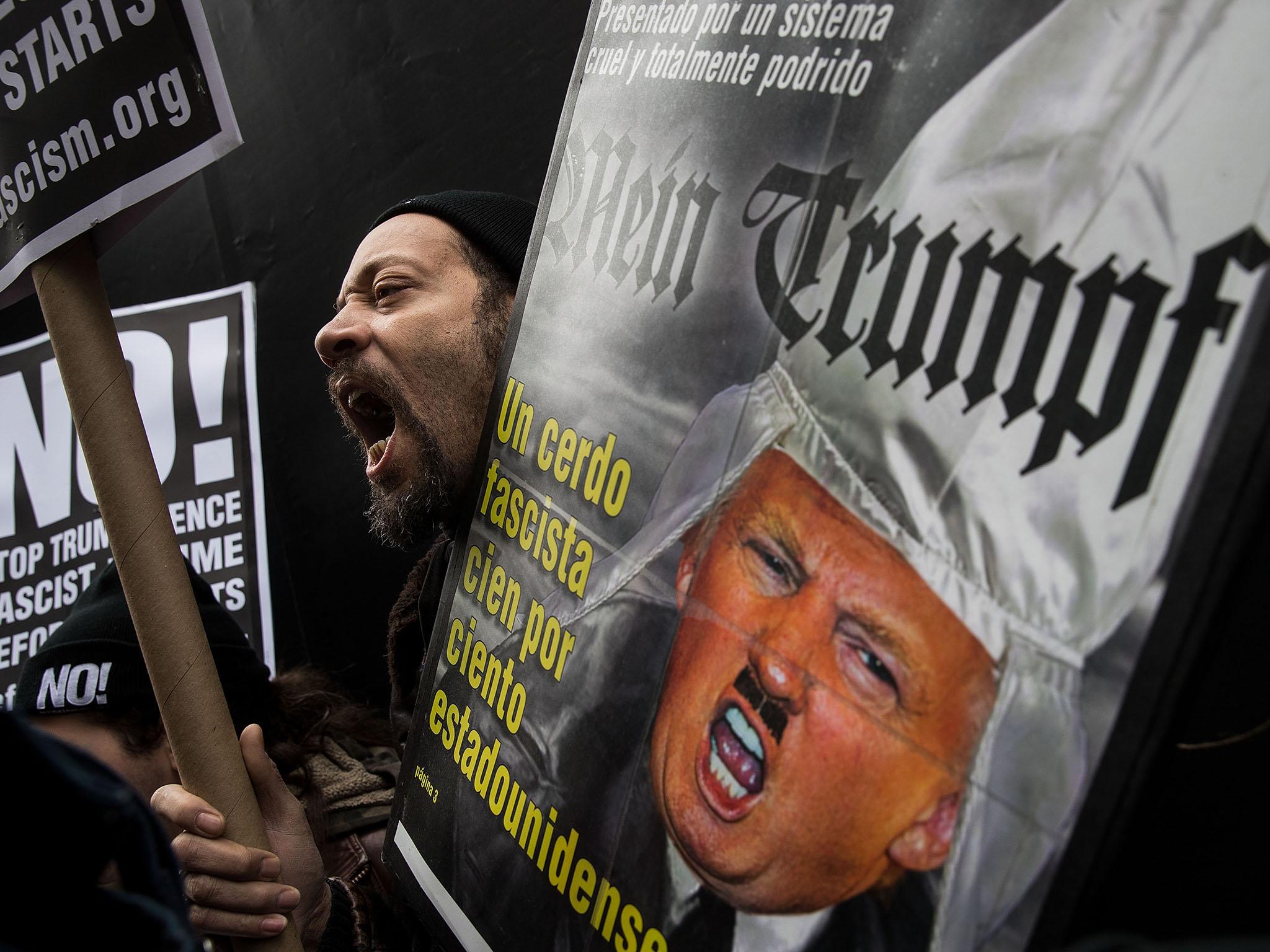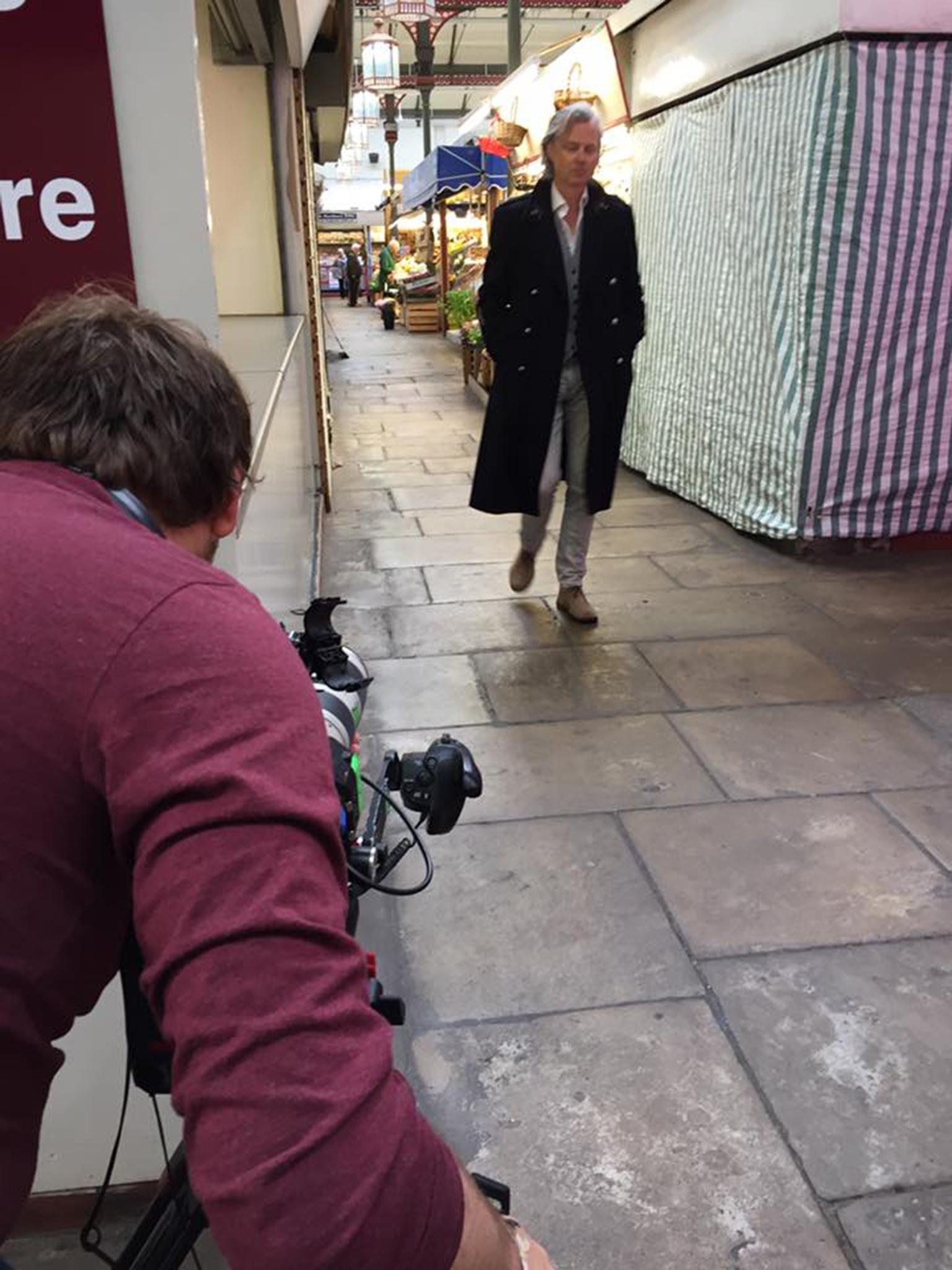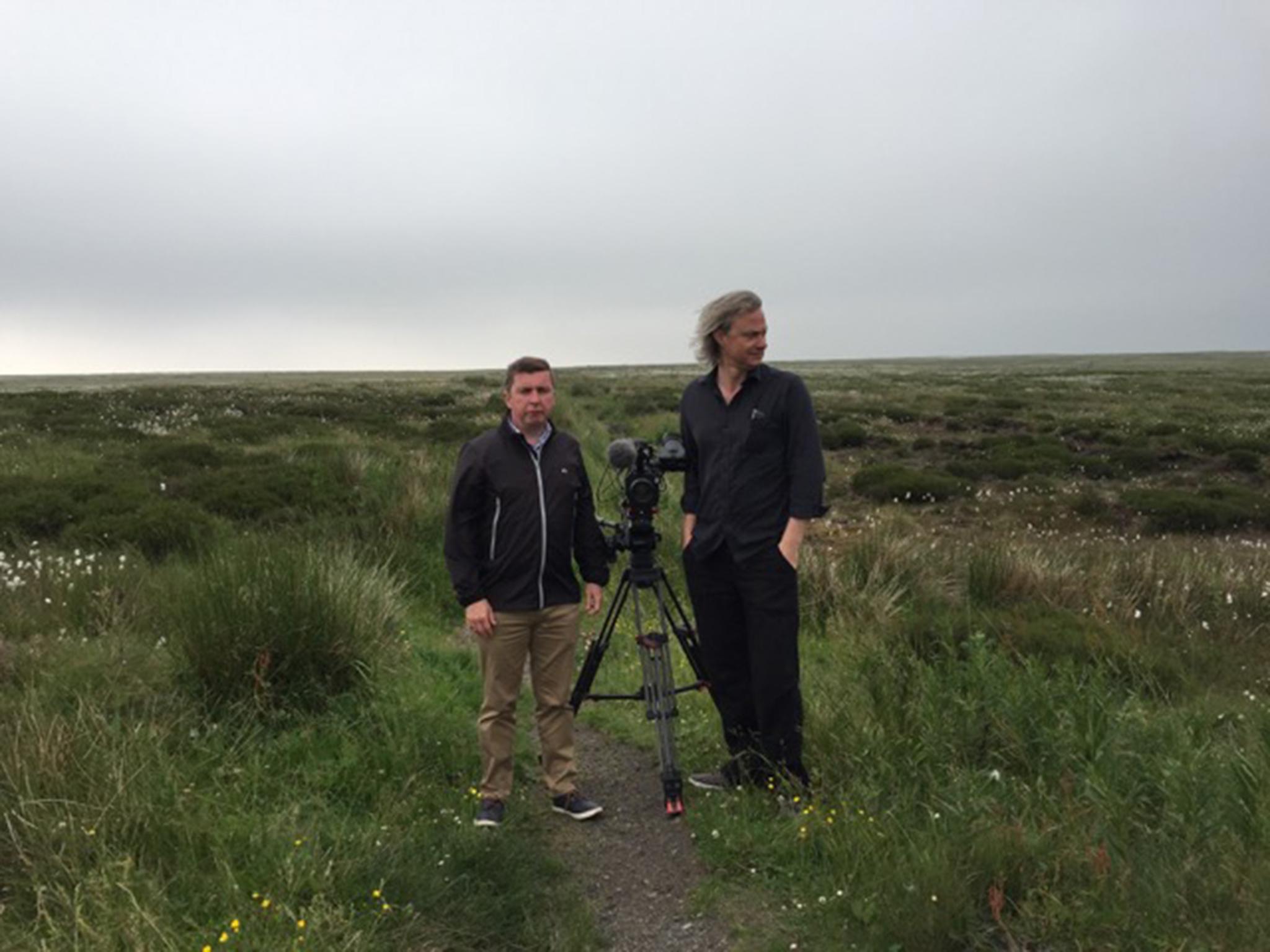Escape the evils of Brexit and Trumpery and find solace in a grim thriller
The crime novel wanders the mean streets with its mirror and lets you know what is going on in the violent world beyond the kitchen sink. In the new season of thrillers, Andy Martin realises that the best fiction definitely comes from the worst of times

There was once a cartoon in the New Yorker which featured a 19th-century editor, very Victorian, with long sideburns, and poring over a manuscript on his desk, giving a hard time to a young wannabe writer. “Come, come, Mr Dickens,” he is saying, “it can’t be both the “best of times” and the “worst of times”, can it now? Make your mind up!” It occurred to me at ThrillerFest in New York this week that this could be another of those times, both best and worst.
Worst because of rampant Brexitism and Trumpery. Best on account of the raft of forthcoming thrillers and mysteries in the new season. I’ve read one or two in pre-publication form and heard about a lot more. And it seems as though this year could really be a vintage year. I went along to the splendid ThrillerFest reception at the Grand Hyatt on 42nd Street not just with an eye on the free snacks and drinks. I was also after some free books. The Drifter by Nick Petrie, about a nature-loving military veteran vigilante, just won the “Best Debut Novel” award.
The Switch, by Joseph Finder, puts you in mind of Cary Grant in North by North West, an innocent guy on the run with a McGuffin in his briefcase and a target painted on his back. And the new Lee Child, The Midnight Line, in which Reacher tries to work out what happened to a West Point graduate who left a ring in a pawn shop, looks like being an instant classic.
The question is: could there be a connection? The worse the state of the world, the better the literature emerging out of our orgy of uncertainty and self-destruction? There is a case for saying that all great works reflect death, horror, murder, crime. Think War and Peace or Crime and Punishment. The Brothers Karamazov just naturally assumes that most sons will want to bump off their father. Turning it around, Sylvia Plath’s “Daddy” is predicated on the belief that guys (and perhaps specifically Ted Hughes) have got it in for her.
They’re all Nazis at heart. Al Alvarez used to make the case that all the best poetry was written on the verge of nervous breakdown. Maybe that’s where we are now. And what about all those insane battle scenes in Lord of the Rings? Could they have been written or conceived had not Tolkien scurried about the trenches at the Somme and lived through the Second World War (albeit in Oxford)?

I have a soft spot for the lost tribe of crime writers. For one thing, they are generous – one writer put his maid’s son through school in the US. For another, they are funny and scurrilous: “Men!” observed one wit. “They’ll have sex with anything with a pulse – or which has recently had one.” Among the wandering British authors at ThrillerFest was Simon Toyne, who was masterfully chairing star-studded ThrillerFest panels and doing simultaneous FaceBook broadcasts.
I was already a fan of Toyne. He has a lot of mad hair, lives in Brighton, and writes novels that almost justify the absurd adjective, “unputdownable”. You can in fact put them down, because you have to pick up a cup of tea or butter some toast or whatever, but you don’t particularly want to. The one of his that I’ve read, Solomon Creed, is the kind of book that makes you miss your stop on the tube. He was masterfully chairing ThrillerFest panels adorned with star writers. And now he has made a TV series of “true crime” stories with a twist.
Written in Blood (aired on CBS Reality in September) is different, because it does two things: reconstructs a real crime or crimes that have taken place somewhere in the UK at some point in the past few decades; and it hooks them up to a particular writer who has been inspired or provoked by them. In the rough cut that I saw Mark Billingham (twice winner of Crime Novel of the Year) accompanied by Toyne, revisits the scene of the horrific “honour killing” that lies behind his recent novel, Love Like Blood. In another episode Peter James takes us on a tour of the exploits of the “Shoe Rapist” of Rotherham.
In each case, a murderer or vicious criminal acts as a muse to the writer. The novel that follows is not exactly an account of the crime, but it contains it in some way, reflects on it, or resolves it. Perhaps Plath and Tolkien could be said to have an allegorical relationship to the events they lived through, more metaphorical or metamorphic, their works going off at a tangent to history. Crime fiction, in the light of Written in Blood, is verging on pure mimesis: here, in reality, we have a crime; there, in the text that follows, we find another “crime”, having a close affinity to the first, and which could not really exist without it. If there were no crimes, the shelf in the bookshop labelled “crime” would not be there.
There are real criminals pursued by flesh-and-blood detectives; the sinners and saviours of crime fiction follow in their footsteps. Without DNA and fingerprinting you can’t have CSI. There is an inescapable symbiosis, almost rivalry, between crime and “crime”. As Toyne said: “If I weren’t writing for a living, I could be out there robbing banks. But I probably wouldn’t be very good at it. The great thing about writing is that if you get it wrong, they don’t usually put you in jail for it.”

I’ve often heard that crime fiction is the last refuge of social realism. While mainstream writers (say, Jonathan Franzen or Julian Barnes) tend towards psychology and family drama, the crime novel wanders the mean streets with its mirror and lets you know what is really going on in the violent world beyond the kitchen sink and the marital breakdown.
Billingham recently wrote a passionate polemic saying this was exactly what the serious writer of today should be doing – reporting on otherwise little known or under-represented phenomena such as honour killings. It’s odd though, because don’t we curl up with a good book to “escape” too much reality? I was initially surprised to learn that the “ThrillerMaster” at ThrillerFest 2018 is George R R Martin, author of Game of Thrones. Hold on, isn’t that fantasy? Yes, but even in the most realistic of “pure” crime novels there is there myth, magic and miracle.
Take Toyne’s new novel, The Boy Who Saw (published by Harper Collins). I’ve only put it down to be able to write this. In the very first chapter there is a dead body. Or rather a body – an old tailor, and holocaust survivor – who starts off very much alive, somewhere in France, but doesn’t have a very long part to play in the proceedings, having been ripped apart (with a Star of David shape torn into his chest) by a mystery man who speaks German and tortures him and then feeds him to some rats that he had conveniently brought with him in a box.
I still know nothing of “the boy” who clearly saw something, but I do know that “pale man” Solomon Creed has turned up in town. And if he is not avenging the monstrous crime of Chapter 1 by the end of the book I will be demanding my money back. In the crime novel, there always is something rotten in the state of Denmark, or Sweden, or France, or the UK, or America. The rest of the novel is, technically speaking, “apotropaic”, designed to ward off the evil spirit.

Carlo Ginzburg, the Italian historian, suggested the phrase “cynegetic paradigm” to describe what Freud, an art historian, and Sherlock Holmes have in common: they are all following a trail, a series of clues, a scent (like a dog – from the Greek, kunē). There is something ancient and pre-literate about the modern detective novel. There are echoes of palaeolithic man or woman stuck in a cave and hunted by saber-toothed tigers and protected by – they hope – some guardian figure. A hero who will come and save them. Miss Marple and Hercule Poirot are as mythic as Odysseus. Or Oedipus. Freud is the one who invoked the desire to kill your father and marry your mother. In fact Oedipus desires no such thing, he is rather trying to get away from it: he is just unwise in killing some old dude at the crossroads and marrying an older woman.
But above all he promises to solve a crime (unfortunately he discovers that he is the criminal) and thereby relieve the city of the terrible plague that has befallen it. Solomon Creed, Toyne’s hero – notice the Biblical resonances – makes similar if implicit promises and with his mystical and mysterious powers is the closest we can come today to a modern myth, to a godlike figure with power over mere mortals. I am re-reading Sir Walter Scott’s Ivanhoe and it strikes me that Creed and perhaps even Lisbeth Salander, The Girl with the Dragon Tattoo (returning in the forthcoming The Girl Who Takes an Eye for an Eye), have a lot in common with those medieval knight errant figures, going about seeking some elusive holy grail and sorting out a lot of bad guys along the way.

There is surely something irresistible about such tales. We have been programmed, in evolutionary terms, to find consolation and reassurance in these narratives that provide both an epistemological and moral pay-off: a puzzle is solved and justice is served. We wander the earth in a moral maze in which mysteries have a habit of remaining mysterious. We rely on the crime novel to bring us clarity and enlightenment where before there was only darkness. Maybe it is all we have left of the sublime.
Which I think explains why these narratives are so popular in the age of Brexit and Trumpery. The novel is more myth than mimesis, an “escape” in that it offers an imaginary solution of the ills that beset us and remains intractable in the real world. It is closer to religion than to nature because it insinuates that there is always Someone On Our Side. But they also suggest why, in turn, Brexiteers and Trump have of late been so insanely successful. It is because their penny-dreadful gospel claims to “save” us from a host of hazy crimes and misdemeanours, “carnage” and apocalypse.
Here is the fundamantal plot of every crime novel and thriller I have ever read: “Look! there is a plot!” The hero is the character who offers to dismantle the plot. Stop the plot! Because we hate plots (and plotters). But we also love plots. There is surely a lesson here for any politicians hoping to unravel the nonsensical conspiracy theories of our day. They too need a plot or a narrative about plots. Maybe we can get beyond post-truth and return to truth and reportage and say “Look! this is the way things really are.” But we also need “Look! there is a plot!” And a faint sense of Someone On Our Side. If you want to save truth from falsehood you have pass through the gates of fiction.
Written in Blood starts 3 September at 10pm on CBS Reality
Andy Martin is the author of Reacher Said Nothing: Lee Child and the Making of Make Me and teaches at the University of Cambridge.
Join our commenting forum
Join thought-provoking conversations, follow other Independent readers and see their replies
0Comments